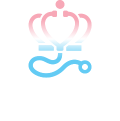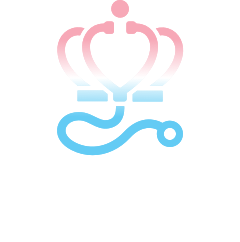Understanding Mental Health and Social Transition
Mental Health as part of Trans Care
Gender Affirming Therapy is a therapeutic stance that affirms and supports diverse gender identities, rather than seeing gender as something to “fix” or “repair.” Gender is also viewed as fluid, rather than binary, and can evolve over time. Diversity of gender is documented in ancestral histories of tribal communities that have existed across our globe. Diverse gender presentations across cultures also require cultural sensitivity to the intersectional nature of gender and other identities.
Being transgender or gender diverse is not, in and of itself, a mental health problem or diagnosis, and instead a reflection of natural human diversity that has always existed. It is prejudice, discrimination, and harassment that are the primary contributors to mental and physical health disparities for transgender and gender diverse individuals of all ages. The internalization of familial and societal transphobic messages and oppression can contribute to a decreased sense of self-worth, substance abuse, risk-taking, shame, and suicidality.
Mental health services are not a requirement for most aspects of transition. Here are some reasons that transgender and gender diverse individuals may seek out the services of a mental health provider:
One may be exploring their gender identity and/or sexual identity and may choose to seek psychotherapy with an affirming therapist who can support them in exploring and defining their true identity and/or managing minority stress.
One may seek the support of an affirming provider as they navigate various medical, social, and/or surgical aspects of gender transition or affirmation. Many affirming providers may also be able to assist with recommendations for other affirming healthcare providers and resources in the community.
One may also seek out psychotherapy for reasons that have little or nothing to do with their gender identity or sexuality but want to know they are working with a provider who can understand and affirm all aspects of them as a person.
Types of Mental Health Providers
What do all those letters behind their names mean?
Psychiatric Medication Providers
Medical provider who primarily prescribes medication, provide medication management, and can also provide psychotherapy and assessment.
*Additional providers who may prescribe psychotropic medications are Physician Assistant-Certified (PA-C) n Psychiatry and Psychiatric Mental Health Nurse Practitioner (PMHNP), and of course, general physicians.
It is not uncommon for family physicians to prescribe psychiatric medication.
Psychotherapy Providers
Mental health provider with a doctorate who can provide psychotherapy and conduct a variety of psychological and neuropsychological assessments. Psychologists have diverse areas of academic focus as well as a provisional period of supervision before becoming fully licensed.
Licensed as a psychologist with a master’s degree who can provide psychotherapy and assessments. (There are no formal assessment questionnaires that can identify one’s gender identity or diagnose gender dysphoria.)
Master’s level psychotherapists trained with an emphasis on addressing community health resourcing and advocacy and overseen by the following NC Board. Tiered Licensure indicating provisional, fully licensed for independent practice and supervision level licensure.
Master’s level psychotherapists trained with an emphasis on family systems and relationship healing.
Providers who may Specialize in Substance Use Problems
Social Transition
Social transition can include a variety of considerations, and each person’s journey may be different. There is no one way to be transgender. Many people may think of social transition as coming out to others. Indeed, this is often a part of the journey. However, it often starts with one coming out to themselves first.
Here are some steps and healthcare-related resources that transgender, non-binary, and other gender diverse individuals may utilize along their gender journey.
Going by a new name, more aligned with one’s gender identity, is a common change many gender diverse people make. It is affirming to call someone by the name they ask to be called, and can be a source of distress to continue to be called by one’s birth name (sometimes referred to as “dead name”).
A process of self-disclosure of one’s gender identity and/or sexual orientation to others. The process of recognizing one’s gender identity is different from that assigned at birth may start as young as toddlerhood or much later in life. While some children are clear in their assertion of their gender identity at an early age, it may take some individuals months or years to recognize and/or be ready to share their gender identity with others. Thus, it is often important to bear in mind that a transgender person’s journey has started before they share it with family, friends, or a healthcare provider.
Legal Transition Options including name and gender marker changes can be valuable social transition resources. This can lead to reduced discrimination and increased privacy of identity when interfacing with government, academic and other interactions requiring legal ID. More information on these processes can be found on Resources.
Understanding Transgender Vocal Training
Gender affirming voice therapy is an elective service that can be beneficial for individuals across the gender spectrum who feel that altering their voice and communication style would be a beneficial step in their transition. Many clients report gaining confidence in their sense of gender expression, relief from feelings of dysphoria or social anxiety and feeling more comfortable communicating in the workplace and social situations after completing training.
There are many reasons why someone would seek gender affirming voice therapy. This treatment can be beneficial to anyone on the gender spectrum who feels their voice does not match their identity or whose sound triggers feelings of dysphoria. Individuals with gender dysphoria can be at risk for developing vocal issues/pathology if modifying sound without professional guidance. Voice therapy provides education on healthy vocal hygiene habits and correct vocal production to allow clients to modify their voice in a way that is both healthy and sustainable. Training is provided on the different acoustic aspects of voice that impact gender presentation. Evidence based voice exercises are utilized that will guide the client in how to alter their voice safely.
Estrogen does not alter the voice, Voice therapy is a recommended treatment for altering the voice and if a client chooses phonosurgery to alter pitch it is still recommended they see a voice therapist first to see what goals can be achieved without invasive surgery. For those clients who have already experienced pitch change due to testosterone therapy, it is not uncommon to experience feelings of tightness or muscle tension when speaking in response to sudden change in vocal fold structure. Voice therapy can assist these clients in how to utilize their new voice without muscle tension in addition to providing training in modifying other acoustics to help achieve desired sound. Nonbinary individuals may seek voice therapy for a lighter sound, darker sound or something more gender neutral. Some clients may not have an exact goal in mind, and in this case, voice services can focus on being more exploratory in nature to aid the speaker in finding the voice that feels and sounds authentic for them.

